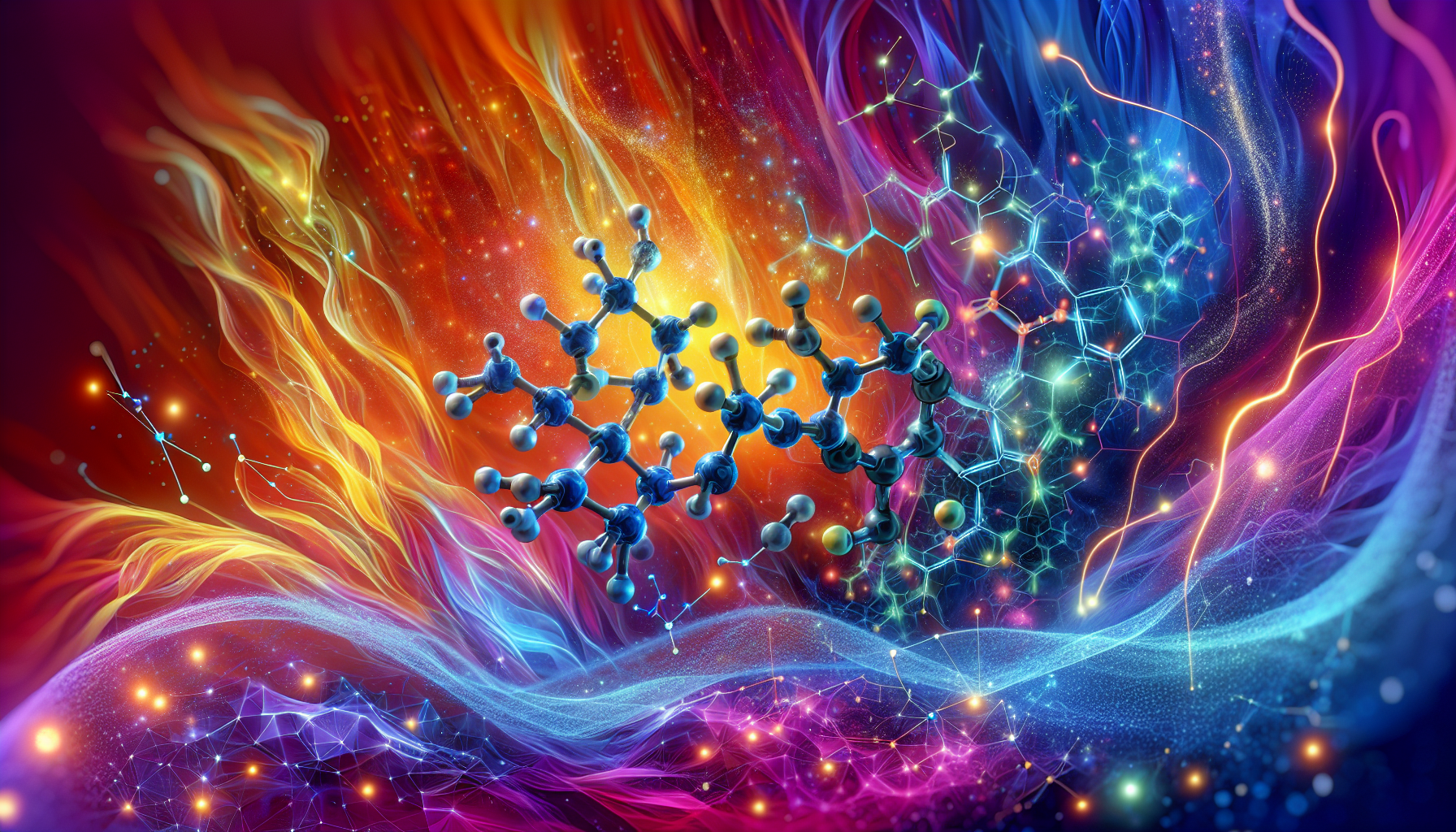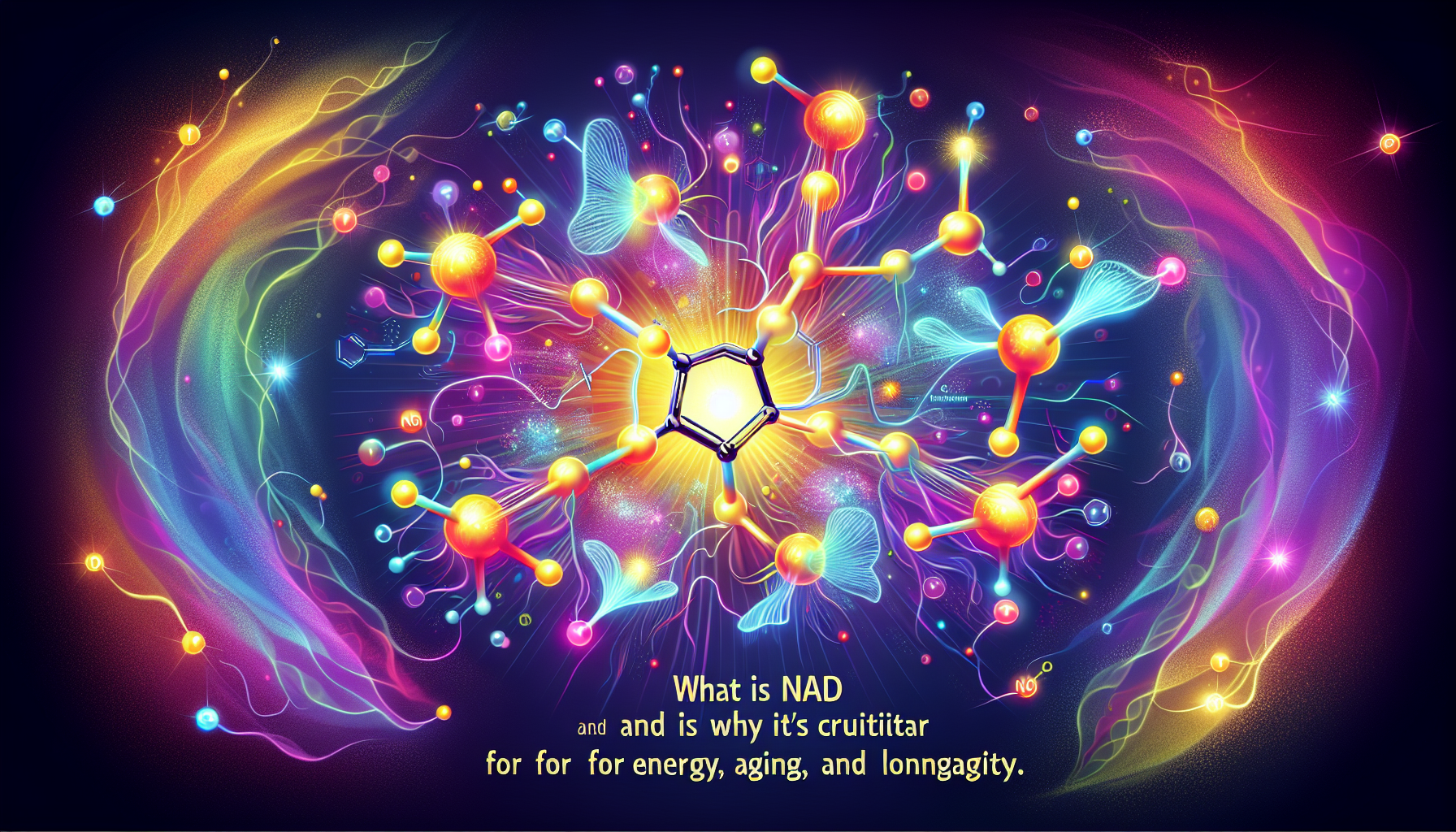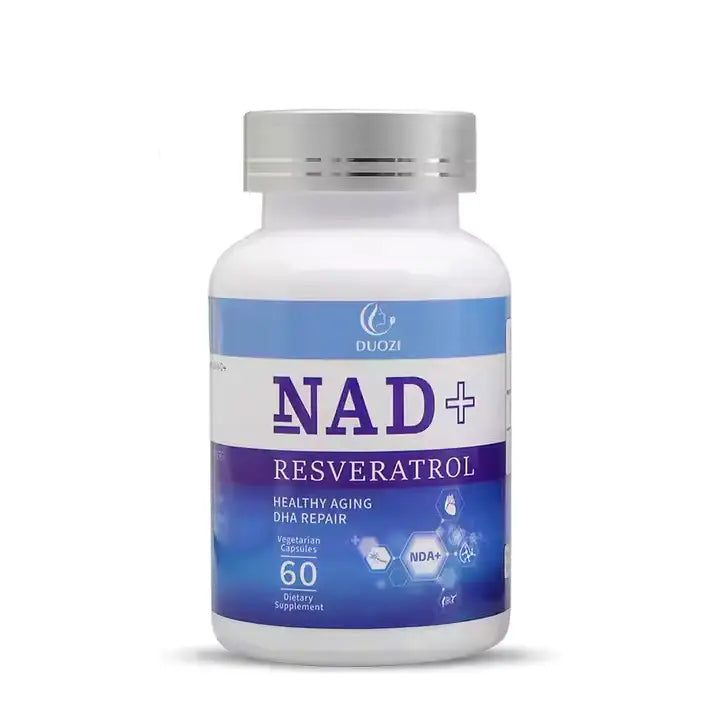Do you often wonder how our bodies manage to stay energized, and what factors contribute to aging and longevity? It’s fascinating how our biology works, and one of the critical components in this process is a molecule known as NAD, or Nicotinamide Adenine Dinucleotide. Although it might sound like something straight out of a science lab, NAD plays a pivotal role in keeping you active and youthful.
What is NAD?
Nicotinamide Adenine Dinucleotide, or NAD, is a vital coenzyme found in every living cell. It is instrumental in various biological processes, primarily involving energy production and cellular health. Without NAD, the fuel necessary for our bodies to function would be in short supply, affecting everything from brain function to muscle performance.
Roles of NAD in the Body
NAD participates in multiple functions. It’s a crucial player in metabolic pathways, helping convert nutrients into energy and supporting cellular functions that are essential for life. Various enzymes use NAD to facilitate reactions that can affect DNA repair, regulate your circadian rhythm, and maintain neural health.
Here’s a simple breakdown:
| Function | Role of NAD |
|---|---|
| Energy Production | Assists in converting food into energy |
| DNA Repair | Promotes cell health and longevity |
| Circadian Rhythm | Regulates sleep-wake cycles |
| Neural Health | Supports brain function and cognition |
NAD and Energy Production
Imagine your body as a well-oiled machine. NAD acts like the oil that ensures all parts run smoothly. During cell metabolism, NAD is used in glycolysis, the Krebs cycle, and the electron transport chain, which are processes that convert carbohydrates, fats, and proteins into ATP (Adenosine Triphosphate), the energy currency of cells.
Glycolysis and the Krebs Cycle
In glycolysis, glucose is broken down in the cytoplasm, with NAD facilitating the transfer of electrons. This process generates ATP, which muscles and brain cells primarily use as an immediate energy supply.
The Krebs cycle, occurring in the mitochondria, relies on NAD to transport electrons. As the cycle spins, it supports the continuous production of ATP, ensuring you have energy even when at rest or during low-intensity activities.

NAD’s Role in Aging
As you age, your body’s NAD levels naturally decline, affecting your health in many ways. Lower NAD levels are associated with a host of age-related problems such as decreased DNA repair capabilities, exacerbated cellular stress, and diminished immune responses.
DNA Repair
NAD is crucial in the activation of enzymes called sirtuins, which play a key role in maintaining DNA integrity and repairing damaged cells. With age, the body’s ability to repair DNA diminishes, partly due to the decline in NAD levels, which can lead to various age-associated diseases.
Enhancing Longevity with NAD
Research into longevity often highlights NAD as a potential key in the quest for extended life spans. Increasing NAD levels might improve cell resilience, delay the onset of age-related diseases, and even enhance cognitive function.
Sirtuins and Longevity
Sirtuins are proteins that oversee DNA repair and energy efficiency. They influence age-related pathways and overall cellular health. By activating these proteins, NAD may contribute to longevity, helping your cells function optimally for a more extended period.

Boosting NAD Levels
Fortunately, there are ways to potentially increase your NAD levels. Several lifestyle changes and supplements have shown promise in scientific studies.
Lifestyle Changes
-
Exercise: Regular physical activity boosts NAD in the tissues, enhancing its availability for energy production and repair processes.
-
Diet: Consuming foods rich in NAD precursors such as niacin (vitamin B3) can aid in naturally boosting NAD levels. Whole grains, green vegetables, and lean meats are excellent sources.
-
Intermittent Fasting: This eating pattern might upregulate NAD levels by stressing the cells in a beneficial way, prompting a more efficient repair process.
Supplements
There are specific NAD precursors available as supplements that may help elevate the levels of this coenzyme in the body.
Common NAD Supplements:
| Supplement | Description |
|---|---|
| NR (Nicotinamide Riboside) | A precursor thought to increase NAD efficiently. |
| NMN (Nicotinamide Mononucleotide) | Converts directly into NAD and supports energy metabolism. |
Potential Issues and Considerations
While boosting NAD seems promising, it’s crucial to approach this strategy with a balanced perspective. Not every method may work uniquely for everyone, and overuse of supplements without supervision could lead to unintended consequences.
Consult Health Professionals
If you’re considering supplements to increase your NAD levels, it’s wise to consult healthcare providers. They can offer personalized advice based on your unique health needs and any potential interactions with medications you may be taking.
Concluding Thoughts
Understanding NAD and its impact on energy, aging, and longevity paints a clear picture of the intricate dance of biology that sustains life. By appreciating how NAD functions, you can take proactive steps to support your long-term health and vitality. Embracing lifestyle changes and considering supplements, when appropriate, could be effective strategies to maintain your energetic, youthful glow as you age gracefully.
